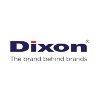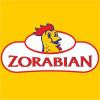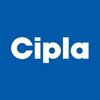Quality Controller
300+ Quality Controller Interview Questions and Answers

Asked in Aurobindo Pharma

Q. What is chemistry? What is difference between organic and inorganic chemistry
Chemistry is the study of matter and its properties. Organic chemistry deals with carbon-based compounds while inorganic chemistry deals with non-carbon-based compounds.
Chemistry is a branch of science that deals with the composition, structure, properties, and reactions of matter.
Organic chemistry is the study of carbon-based compounds, including hydrocarbons, carbohydrates, proteins, and nucleic acids.
Inorganic chemistry is the study of non-carbon-based compounds, including...read more

Asked in Sun Pharmaceutical Industries

Q. What is hplc? Principle! U know about TLC? What is chromatography? What is pH and ranges? What is Uv and principle? U know about ICH
HPLC stands for High Performance Liquid Chromatography. It is a technique used to separate, identify, and quantify components in a mixture.
HPLC is based on the principle of separating components in a mixture using a liquid mobile phase that carries the sample through a stationary phase.
TLC stands for Thin Layer Chromatography, which is a technique for separating and analyzing mixtures based on their differential migration on a thin layer of adsorbent material.
Chromatography i...read more
Quality Controller Interview Questions and Answers for Freshers

Asked in Molbio Diagnostics

Q. What are nucleic acids and what role do they play in biological systems?
Nucleic acids are biomolecules essential for storing and transmitting genetic information in cells.
Nucleic acids are made up of nucleotides, which consist of a sugar, a phosphate group, and a nitrogenous base.
There are two types of nucleic acids: DNA (deoxyribonucleic acid) and RNA (ribonucleic acid).
DNA carries genetic information and is responsible for inheritance, while RNA plays a role in protein synthesis.
Nucleic acids are crucial for the replication and expression of ge...read more

Asked in Molbio Diagnostics

Q. What is Polymerase Chain Reaction (PCR), and what are its different types?
PCR is a technique used to amplify a specific DNA sequence, producing millions of copies for analysis.
PCR involves cycles of heating and cooling to denature, anneal, and extend DNA strands.
Types of PCR include conventional PCR, quantitative PCR (qPCR), reverse transcription PCR (RT-PCR), and digital PCR.
Conventional PCR is used for DNA amplification, qPCR for quantifying DNA, RT-PCR for RNA amplification, and digital PCR for absolute quantification.

Asked in Radico Khaitan

Q. What are the roles of FSSAI and ISO in the liquor industry?
FSSAI and ISO play important roles in ensuring quality and safety standards in the liquor industry.
FSSAI sets standards for food and beverages, including alcoholic beverages, to ensure their safety and quality.
ISO provides guidelines for quality management systems, which can be applied to the production and distribution of alcoholic beverages.
Compliance with FSSAI and ISO standards can help ensure that the liquor industry meets regulatory requirements and produces high-qualit...read more

Asked in Molbio Diagnostics

Q. What is the difference between nucleic acids and nucleosides?
Nucleic acids are macromolecules made up of nucleotides, while nucleosides are smaller molecules composed of a nitrogenous base and a sugar.
Nucleic acids are polymers made up of nucleotides, which consist of a nitrogenous base, a sugar, and a phosphate group.
Examples of nucleic acids include DNA and RNA.
Nucleosides are smaller molecules composed of a nitrogenous base and a sugar, but they lack the phosphate group found in nucleotides.
Examples of nucleosides include adenosine ...read more
Quality Controller Jobs




Asked in Molbio Diagnostics

Q. What are the differences between Real-Time PCR and conventional PCR?
Real-Time PCR allows for monitoring the amplification of DNA in real-time, while conventional PCR requires post-amplification analysis.
Real-Time PCR provides quantitative data in real-time, while conventional PCR only provides qualitative data after the reaction is complete.
Real-Time PCR uses fluorescent dyes or probes to monitor amplification as it occurs, while conventional PCR relies on gel electrophoresis to visualize the final products.
Real-Time PCR is more sensitive and...read more

Asked in Molbio Diagnostics

Q. What is the process of DNA extraction and isolation?
DNA extraction and isolation is the process of obtaining DNA from cells for further analysis.
Cells are lysed to release DNA
Proteins and other contaminants are removed through precipitation or column purification
DNA is then precipitated and washed to remove impurities
Finally, DNA is resuspended in a buffer for storage or analysis
Share interview questions and help millions of jobseekers 🌟


Asked in Infra.Market

Q. What are the permissible limits for flakiness and elongation index in accordance with IS code regulations?
IS code specifies limits for flakiness and elongation index to ensure quality in construction materials.
Flakiness Index: Should not exceed 15% for coarse aggregates.
Elongation Index: Should not exceed 10% for coarse aggregates.
Flakiness Index measures the percentage of particles whose thickness is less than 0.6 times their mean dimension.
Elongation Index measures the percentage of particles whose length is greater than 1.8 times their mean dimension.
Example: If 100 particles ...read more

Asked in Vensa Infrastructure

Q. How can you manage shuttering without removing supports under the slab and pour strip?
Shuttering can be managed without removing supports under slab and pourstrip by using adjustable props and beams.
Use adjustable props to support the slab and pourstrip while removing the shuttering.
Install beams to transfer the load from the slab to the props, allowing the supports to be removed.
Ensure proper alignment and spacing of props and beams to distribute the load evenly.
Regularly check and adjust the props and beams to maintain stability during the construction proce...read more

Asked in Dixon Technologies

Q. If there is a problem with a product, how will you control it?
I will identify the root cause of the problem, implement corrective actions, and monitor the effectiveness of the solutions.
Investigate the issue to determine the root cause
Implement corrective actions to address the problem
Monitor the effectiveness of the solutions to ensure the problem is resolved
Document the entire process for future reference

Asked in Shilpa Medicare

Q. How do you convert reverse phase to normal phase in HPLC?
To convert reverse phase to normal phase in HPLC, change the stationary phase from non-polar to polar.
Replace the non-polar stationary phase with a polar one
Use a polar mobile phase
Adjust the pH of the mobile phase to match the pKa of the analyte
Optimize the gradient elution conditions
Verify the separation using appropriate standards

Asked in Vensa Infrastructure

Q. What checks do you perform on concrete, and how do you handle column and slab junctions?
Checks in concrete include slump test, air content test, temperature monitoring. At column and slab junction, check for proper reinforcement placement, formwork alignment, and concrete pouring.
Perform slump test to ensure proper consistency of concrete
Check air content to ensure proper durability and workability
Monitor temperature to prevent issues like thermal cracking
At column and slab junction, check reinforcement placement for proper strength
Ensure formwork alignment to p...read more

Asked in Radico Khaitan

Q. What is the role of a quality controller during production?
The role of a quality controller during production is to ensure that products meet the required standards and specifications.
Monitoring and inspecting production processes
Identifying defects and deviations from standards
Implementing corrective actions to prevent defects
Maintaining records and documentation of quality control activities
Collaborating with production teams to improve processes
Ensuring compliance with regulatory requirements
Conducting audits and quality assessmen...read more

Asked in Zorabian Chicken

Q. Which bacteria are harmful, and what are their acceptable limits?
Harmful bacteria and their limits vary depending on the context and industry.
Common harmful bacteria include Salmonella, E. coli, and Listeria.
Limits for harmful bacteria in food are regulated by government agencies.
In the medical field, harmful bacteria can cause infections and diseases.
Different industries have specific guidelines for acceptable levels of bacteria.
Regular testing and quality control measures are essential to ensure safety.
Asked in Myla

Q. How to check the quality and explain the quality checking How many years in experience quality checking What you find the quality checking How to check the quality status
Quality checking involves inspecting products or services to ensure they meet certain standards.
Quality checking involves examining products or services to ensure they meet certain standards
This can involve visual inspection, testing, or other methods depending on the product or service
Experience in quality checking can vary, but typically requires knowledge of industry standards and regulations
To check the quality status, one must compare the product or service to establishe...read more

Asked in Flyocrete Green Concrete

Q. What is the minimum compressive strength of OPC 43 grade cement?
Minimum compressive strength of OPC 43 grade cement is 43 MPa.
OPC 43 grade cement has a minimum compressive strength of 43 MPa
The compressive strength of cement is a measure of its ability to withstand compressive loads
OPC stands for Ordinary Portland Cement
The grade of cement indicates its strength and quality

Asked in Sun Pharmaceutical Industries

Q. What is hplc ?pricinple? U know about TlC? What is chromatography? What is pH and ranges? What is uv and principle? U know about ICH?
HPLC stands for High Performance Liquid Chromatography. It is a technique used to separate, identify, and quantify components in a mixture.
HPLC is based on the principle of separating components in a mixture using a liquid mobile phase and a solid stationary phase.
TLC (Thin Layer Chromatography) is another chromatographic technique where the stationary phase is a thin layer of adsorbent material on a flat support.
Chromatography is a technique used to separate and analyze mixt...read more

Asked in Biocon Limited

Q. How many elements are there in the periodic table?
There are 118 elements in the periodic table.
There are 118 known elements in the periodic table.
Elements are organized by atomic number, electron configuration, and recurring chemical properties.
Examples of elements include hydrogen, oxygen, gold, and uranium.
Asked in Myla

Q. How to check the quality and explain the quality checking How many years in experience quality checking What u find the quality
Quality checking involves inspecting products or services to ensure they meet standards. Experience and attention to detail are key.
Quality checking involves inspecting products or services to ensure they meet standards
This can include visual inspections, measurements, and testing
Experience and attention to detail are key in identifying potential issues and ensuring quality
Quality checking can involve using tools such as checklists, statistical process control, and quality co...read more

Asked in Cipla

Q. What is ultraviolet (UV) spectroscopy, and how does it work?
UV spectroscopy is a technique used to analyze the absorption and transmission of ultraviolet light by a sample.
UV spectroscopy involves measuring the absorbance of ultraviolet light by a sample.
It works based on the principle that molecules absorb UV light at specific wavelengths.
The amount of absorption is proportional to the concentration of the absorbing species in the sample.
UV spectroscopy is commonly used in pharmaceutical, environmental, and biochemical analysis.

Asked in Infra.Market

Q. What is the required mixing time for concrete as specified by the IS code?
IS codes specify a minimum mixing time for concrete to ensure uniformity and strength, typically around 2 to 5 minutes.
The minimum mixing time for concrete is generally 2 minutes for a concrete mixer.
For larger batches, the mixing time can extend to 5 minutes to ensure proper consistency.
Different types of mixers may have varying mixing times; for instance, a pan mixer may require less time than a drum mixer.
It's crucial to adhere to these times to achieve the desired workabi...read more

Asked in BigBasket

Q. What are climatic and non climatic fruits and vegetables
Climatic fruits and vegetables are those that require specific climate conditions to grow, while non-climatic ones can grow in various climates.
Climatic fruits and vegetables need specific temperature, humidity, and sunlight conditions to thrive
Non-climatic fruits and vegetables can grow in a wider range of climates
Examples of climatic fruits: bananas, pineapples, mangoes
Examples of non-climatic fruits: apples, oranges, strawberries
Examples of climatic vegetables: tomatoes, c...read more

Asked in AML RightSource

Q. How does the Know Your Customer (KYC) process work?
KYC is a process used by businesses to verify the identity of their clients to prevent fraud and ensure compliance with regulations.
1. Customer Identification: Collect personal information such as name, address, and date of birth.
2. Document Verification: Validate identity documents like passports or driver's licenses.
3. Risk Assessment: Evaluate the customer's risk level based on their profile and transaction behavior.
4. Ongoing Monitoring: Continuously monitor transactions ...read more
Asked in Jayachandran Industries

Q. Describe the process of confirming the presence of chlorine in a sample using nitric acid, silver nitrate, and water. Include the expected observations and chemical formulas (HNO3, CH3COOH).
The presence of chlorine can be confirmed by adding nitric acid and silver nitrate to a sample, resulting in a curdy white precipitate.
Mix 1 ml sample with 5 ml nitric acid and 5 ml silver nitrate
Add 10 ml water and observe for curdy white precipitate
Presence of chlorine confirmed if precipitate forms

Asked in Romsons Group Of Industries

Q. Tell me about your technical knowledge of pharmaceutical production.
I have extensive technical knowledge of pharmaceutical production.
I am familiar with Good Manufacturing Practices (GMP) and Quality Control (QC) procedures.
I have experience in operating and maintaining production equipment such as tablet presses, capsule fillers, and packaging machines.
I am knowledgeable in the formulation and compounding of pharmaceutical products.
I am familiar with the various stages of pharmaceutical production, including raw material testing, in-process ...read more

Asked in JSW Steel

Q. What is the least count of vernier calipers and micrometers?
The Listcount of vernier caliper & micrometers is 2.
The Listcount of vernier caliper is 1.
The Listcount of micrometers is 1.

Asked in Iac Electricals

Q. What are the different types of measuring tools and their uses?
Different types of measuring tools include rulers, calipers, micrometers, tape measures, and gauges.
Ruler - used for measuring straight lines and lengths
Calipers - used for measuring the distance between two opposite sides of an object
Micrometers - used for measuring very small distances or thicknesses
Tape measure - used for measuring longer distances or circumferences
Gauges - used for measuring specific dimensions or parameters

Asked in Jindal Industries Private Limited

Q. What are the quality control measures according to various IS (Indian Standards) standardization?
Quality control measures ensure products meet standards, enhancing safety and reliability across various industries.
IS 15000: Focuses on quality management systems in manufacturing processes.
IS 9001: Establishes criteria for a quality management system, applicable to any organization.
IS 13485: Specific to medical devices, ensuring consistent quality in design and manufacturing.
IS 14001: Addresses environmental management, promoting sustainable practices in quality control.
IS ...read more

Asked in Ashirvad Pipes

Q. When do you think you should start quality assurance for a product?
Quality assurance for a product should start at the beginning of the product development process.
Start quality assurance during the design phase to prevent issues from arising later on
Implement quality control measures during manufacturing to ensure consistency and reliability
Conduct regular inspections and testing throughout the production process
Involve stakeholders in the quality assurance process to gather feedback and make improvements
Continuously monitor and evaluate th...read more
Interview Questions of Similar Designations
Interview Experiences of Popular Companies








Reviews
Interviews
Salaries
Users

















